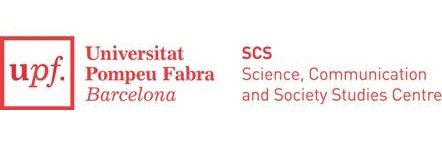MODULE C1
Semi-structured interviews with relevant actors
(case studies “science centres” and “science events”)
In this module, individual interviews with the most important actors (or representatives of these actors in the case of institutional actors) should be conducted. If several actors of the same type were involved in the case (e.g. a group of scientists) interviews should be conducted with a representative member of that actor type. The main goal of these interviews is to measure the impact that participating in the event has caused on the actor him/herself.
Selection of interviewees
Based on general knowledge of the case gathered in the preparation of the case study, the most important actors from the list of actors (see Table 2, p. 20) should be selected. There are interview guidelines for each possible type of actor. The prospective interviewees have to be contacted and asked to agree with the interview.
Interviewing
Interviews should be structured into two parts (see guidelines below): First, the interviewee should have a chance to describe his/her involvement in the case under investigation from his/her own perspective and describing how he/she became involved and how,and in which role he/she was involved. This part gives useful context for the further more focused questions and also serves to let the interviewee recall the event. The second part should then focus on possible impacts of his/her involvement on himself/herself.
All interviews should be carefully recorded but for further technical details on how to conduct semi structured interviews please refer to the Methodological Considerations Chapter (p.25).
Analysis
Ideally, the analysis of the interviews should be based on transcripts of the audio recording. Given the limited resources for each case study and the straightforward goals of the analysis, taking notes while listening to the audio recording might be sufficient, however. The analysis should focus on the explicit and implicit comments of the interviewee of how he/she or the institution they represent were affected (e.g. acquired skills and new insights, had benefits for their work, made useful contacts etc., ., see p.75 or p.22 Download the complete PLACES Impact Assessment Toolkit for a list of potential areas of Impact or effects on actors). Indicators for such effects could be the self-reporting of the interviewee, but also information about follow-up activities or consequences of the interviewee’s involvement in the case.
The analysis should thus result in a selective, structured summary of the interview. It should identify the impact dimensions mentioned by the interviewee and their description of the kind of impact and the size of it in the respondents own words. The analysis should also include the required context information (e.g. about the interviewees role in the case) necessary to understand why this impact has occurred and why is it important to the interviewee. If the interviewee mentions that a particular kind of impact has not occurred, this should also be taken into account for the analysis.
Reporting
The analyses of the semi-structured interviews with actors will be a section in the case study report. It should consist of a verbal description of the impacts on the relevant actors structured by actor and impact type.

